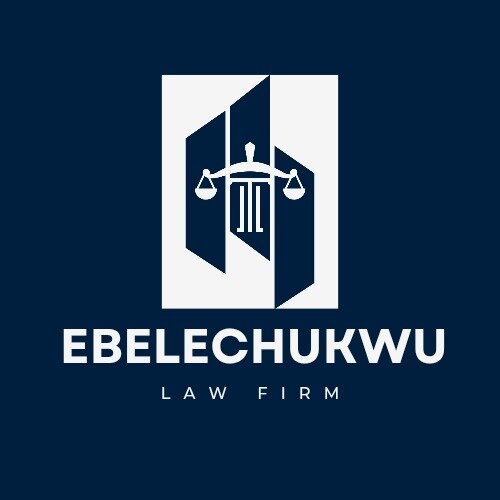Best Father's Rights Lawyers in Nigeria
Share your needs with us, get contacted by law firms.
Free. Takes 2 min.
Free Guide to Hiring a Family Lawyer
Or refine your search by selecting a city:
List of the best lawyers in Nigeria
About Father's Rights Law in Nigeria
Father's Rights in Nigeria pertain to the legal entitlements and responsibilities that fathers have concerning their children. These rights primarily involve issues related to custody, visitation, and child support. Nigerian family law is governed by a blend of statutory, customary, and religious laws, which can vary significantly across different regions. As a result, the rights of fathers may differ depending on the applicable legal framework. Fathers are entitled to participate in decisions affecting their children's welfare and are responsible for providing care and support.
Why You May Need a Lawyer
Fathers may need legal assistance in various situations, such as during divorce proceedings, custody disputes, or when seeking to establish paternity. Legal counsel can be crucial in navigating the complexities of the Nigerian legal system, which may involve dealing with multiple legal principles. A lawyer can help ensure that a father's rights are upheld, advise on the appropriate legal remedy, and represent the father's interests in court if necessary. Moreover, having a lawyer might be necessary for interpreting and applying the relevant local and customary laws effectively.
Local Laws Overview
In Nigeria, the key legal frameworks relevant to Father's Rights include the Child Rights Act 2003, which aligns with international conventions on children's welfare, and various customary laws that differ between ethnic groups. The Matrimonial Causes Act deals with custody and maintenance issues in the context of marriage dissolution. In many cases, custody decisions are based on the best interest of the child principle. However, customary laws may apply in determining custody and inheritance, especially in the absence of a statutory marriage.
Frequently Asked Questions
What are my rights as a father under Nigerian law?
Fathers have the right to seek custody, participate in their children's lives, and be involved in decision-making regarding their welfare.
How is child custody determined in Nigeria?
Custody is primarily determined based on the best interest of the child, considering factors like the child's age, health, and bond with each parent.
Can I change a child custody order in Nigeria?
Yes, a custody order can be modified if there is a significant change in circumstances warranting a review in the child's best interest.
What should I do if the mother denies me access to my child?
If denied access, it's advisable to document the incidents and seek legal recourse through a lawyer who can file a petition in court to enforce your rights.
Do unmarried fathers have rights to their children?
Unmarried fathers can establish paternity legally, which may grant them rights and responsibilities toward their children.
What is the process of establishing paternity?
Paternity can be established through acknowledgment at birth or via a court order following genetic testing.
Are separated fathers obliged to pay child support?
Yes, fathers are required to support their children financially, with the amount typically determined by a court based on income and the child's needs.
Can I relocate with my child within Nigeria or overseas?
Relocation often requires mutual consent from both parents or a court order, especially when affecting visitation rights.
How can I enforce a child support order if the other parent refuses to pay?
Non-compliance can be addressed by approaching a competent court to enforce the order, possibly involving garnishment of wages or other penalties.
What role do customary laws play in Father's Rights?
Customary laws can significantly influence decisions in certain cases, particularly regarding custody and inheritance, based on cultural practices.
Additional Resources
Below are recommended resources and organizations that can assist with Father's Rights issues:
- Nigerian Bar Association - for finding family law practitioners
- Federal Ministry of Women Affairs and Social Development - for policy and support services
- Legal Aid Council of Nigeria - providing pro bono legal services
- Nigerian Institute of Advanced Legal Studies - for research and publications
- Child Protection Networks - offering support and advocacy for children's rights
Next Steps
If you require legal assistance regarding Father's Rights, consider reaching out to a qualified family lawyer who specializes in this area. They can provide personalized advice and represent your interests effectively. Start by gathering relevant documents and evidence related to your situation. Schedule an initial consultation to discuss your case, understand potential outcomes, and outline a course of action. Always ensure that your chosen legal representative has an understanding of the local laws and any applicable customary laws.
Lawzana helps you find the best lawyers and law firms in Nigeria through a curated and pre-screened list of qualified legal professionals. Our platform offers rankings and detailed profiles of attorneys and law firms, allowing you to compare based on practice areas, including Father's Rights, experience, and client feedback.
Each profile includes a description of the firm's areas of practice, client reviews, team members and partners, year of establishment, spoken languages, office locations, contact information, social media presence, and any published articles or resources. Most firms on our platform speak English and are experienced in both local and international legal matters.
Get a quote from top-rated law firms in Nigeria — quickly, securely, and without unnecessary hassle.
Disclaimer:
The information provided on this page is for general informational purposes only and does not constitute legal advice. While we strive to ensure the accuracy and relevance of the content, legal information may change over time, and interpretations of the law can vary. You should always consult with a qualified legal professional for advice specific to your situation.
We disclaim all liability for actions taken or not taken based on the content of this page. If you believe any information is incorrect or outdated, please contact us, and we will review and update it where appropriate.
Browse father's rights law firms by city in Nigeria
Refine your search by selecting a city.
















